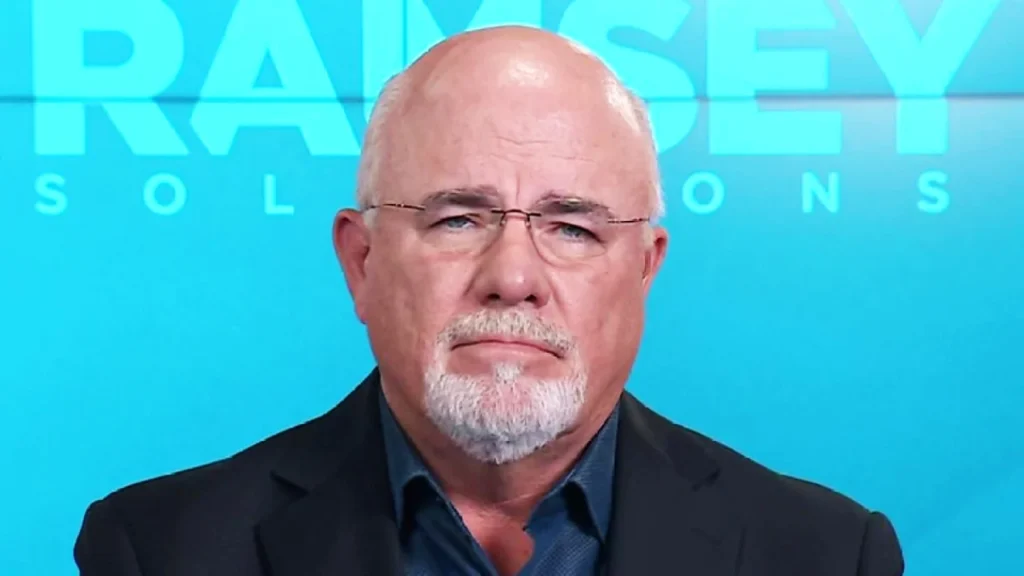Dave Ramsey’s Company Faces Another Setback in Court Over Religious Discrimination

Dave Ramsey
Introduction to the Legal Battle
Dave Ramsey’s company, known for its financial education programs and products, is currently embroiled in significant legal challenges surrounding allegations of religious discrimination. This recent lawsuit marks a continuation of a contentious history concerning the company’s employment practices and its treatment of employees who hold different religious beliefs. The allegations assert that the company’s purportedly faith-based policies have led to discriminatory practices, resulting in a hostile work environment for non-Christian employees. Such tensions have raised critical conversations regarding the intersection of business operations and religious beliefs in the workplace.
In the past, Ramsey’s organization has faced scrutiny from former employees who claimed the company’s hiring and management practices were in violation of anti-discrimination laws. Previous lawsuits have highlighted concerns that employees were dismissed or faced adverse employment actions primarily due to their differing or non-affiliated religious views. These allegations have continuously contributed to an evolving narrative about the company, which publicly promotes financial responsibility and a Christian-centric approach to personal finance.
The implications of these allegations are significant for Ramsey’s organization, as they not only affect employee morale but also have the potential to tarnish the company’s esteemed reputation among its consumers and hearing public perceptions. As the legal proceedings unfold, questions arise about how the company will address these allegations and what changes might be implemented within its organizational culture to promote inclusivity. Moving forward, it will be critical for Ramsey’s company to navigate these controversies, as the outcome of this legal battle could have lasting effects on its operational integrity and market positioning.
Background on Dave Ramsey and His Company
Dave Ramsey is a prominent figure in the realm of personal finance, renowned for his practical approach to financial management and debt reduction. His journey began as a financial advisor, where he gained substantial experience navigating individuals through the complexities of budgeting, saving, and investing. With an educational background in finance and real estate, Ramsey accumulated significant insights into the economic challenges many face. His experiences underpinned the foundation of his financial philosophy, which advocates for living within one’s means and the elimination of debt.
In the early 1990s, Ramsey established his company, Financial Peace, which quickly gained traction as a leader in financial education. The mission of Financial Peace is to help individuals and families achieve financial independence through a series of well-structured classes and resources that emphasize accountability, planning, and disciplined budgeting. The company promotes a range of products, including seminars, books, and additional media, tailored to guide users on their journey to financial stability.
Central to the company’s ethos is the influence of Ramsey’s Christian faith, which has shaped the company’s operational framework and internal culture. The integration of religious beliefs into the financial guidance offered by Financial Peace is evident in the emphasis on stewardship and ethical conduct. Ramsey espouses financial principles that align with Biblical teachings, advocating for practices such as generosity, prudent financial stewardship, and the importance of community support. This distinctive blending of faith and finance not only informs the services provided but also attracts a dedicated following among those who share similar values. Consequently, as the company continues to grow, the intersection of financial counseling with religious principles remains a significant aspect of its identity, influencing both its audience and its practices in the financial sector.
Details of the Recent Court Case
Recently, Dave Ramsey’s company, known for its financial advice and services, found itself embroiled in a significant legal challenge revolving around allegations of religious discrimination. The plaintiff, a former employee, claimed that they faced adverse employment actions due to their religious beliefs, which the company purportedly did not accommodate. This case has drawn considerable attention, as it not only addresses the specific circumstances of the individual involved but also raises broader questions about the intersection of religion and workplace policies.
The plaintiff’s legal team presented arguments asserting that the company’s stated policies on inclusivity and diversity were not upheld in practice. They cited instances where the employee had allegedly been subjected to ridicule and exclusion due to their religious observances. Furthermore, the legal representatives highlighted that the company’s actions were in direct violation of federal and state anti-discrimination laws, which are designed to protect individuals from discrimination based on religion.
In response, the defense team for Ramsey’s company argued that the actions taken against the plaintiff were based on performance-related issues, rather than religious beliefs. They contended that the company upheld a strong commitment to creating a respectful workplace, which includes a zero-tolerance policy for discrimination of any kind. The hearings brought forth testimonies from several current and former employees, some of whom supported the company’s stance, while others echoed the plaintiff’s claims of a non-inclusive environment.
As the case progressed, the court has issued preliminary rulings on the admissibility of evidence and the allowable arguments from both parties. This ongoing legal battle has significant implications, not only for the company but also for the interpretation of employment law as it pertains to religious discrimination. The case exemplifies the delicate balance companies must maintain between maintaining their organizational culture and adhering to legal standards for workforce treatment.
Key Allegations of Religious Discrimination
The ongoing legal battle involving Dave Ramsey’s company centers on several key allegations of religious discrimination that have emerged from the claims made by former employees. At the heart of these allegations is the assertion that the organization’s workplace policies are unjustly biased against individuals who hold differing religious viewpoints. Plaintiffs argue that the company’s leadership fosters an environment that is not only supportive of a specific religious ideology but is also hostile towards those who do not conform to this belief system.
One of the main allegations revolves around hiring practices, where it is claimed that potential employees who do not share the predominant religious views are systematically overlooked for positions. This raises significant concerns about the integrity of the hiring processes and whether they adhere to equal opportunity standards. The plaintiffs contend that such practices are designed to create a workplace filled primarily with individuals who align with the company’s specific religious beliefs, thereby marginalizing those who bring diverse perspectives.
Furthermore, former employees have described experiences where they felt compelled to conform to the prevailing religious ethos in order to succeed professionally. Testimonies suggest that this pressure led to a climate of fear, where dissent or differing opinions about workplace religious culture resulted in retaliation. These claims question not only the ethical standards upheld by the company but also highlight potential violations of both civil rights and labor laws regarding discrimination on the basis of religion.
With these allegations now under scrutiny, they pose broader implications for workplace policies at Dave Ramsey’s organization. A reevaluation of how religious beliefs intersect with professional environments may be necessary, potentially leading to significant changes in human resources practices, employee engagement strategies, and overall corporate culture.
Company’s Response to the Allegations
In light of the recent allegations of religious discrimination, Dave Ramsey’s company has taken a proactive stance through public statements and policy revisions. Company representatives have expressed unequivocal support for their core values, emphasizing a commitment to an inclusive workplace environment where all employees are treated with dignity and respect, regardless of their religious beliefs. The firm’s communications department issued a statement underscoring that diversity of thought and belief is integral to their corporate culture.
Furthermore, the company has announced several changes aimed at reinforcing its dedication to inclusivity. These changes include updated training programs that focus on diversity and equity, which will be integrated into employee onboarding processes. Additionally, the organization is implementing a series of workshops designed to foster open dialogue among staff members regarding religious and cultural differences. These initiatives aim to cultivate a more understanding and cohesive workplace, thereby addressing possible misunderstandings that may arise from the allegations.
Dave Ramsey himself has publicly addressed the situation, stating that he is disheartened by the claims and reiterating his belief that the company’s policies have always encouraged a fair and respectful treatment of every employee. He emphasized that the organization is currently conducting a thorough review of all related practices and has committed to making necessary adjustments to avoid similar disputes in the future. Ramsey’s leadership has also included personal outreach to employees, assuring them that their voices and concerns are valued as the company navigates these challenges. Overall, the response indicates the company’s intention to not only defend its practices but also to strive for improvement where needed, reflecting a genuine commitment to addressing the issues at hand.
Reactions from Employees and the Public
The allegations of religious discrimination against Dave Ramsey’s company have garnered significant attention, eliciting a range of responses from current and former employees, as well as the broader public. Current employees have expressed mixed feelings; some voice their loyalty to the company and its founder, emphasizing the positive experiences they have had in their roles. Conversely, there are those who resonate with the claims of discrimination, citing experiences that they feel reflect a culture intolerant of diverse religious beliefs. This internal divide has sparked discussions among staff regarding inclusivity and the importance of a workplace that respects varied perspectives.
Public sentiment on social media platforms has been starkly divided. Advocacy groups have taken to Twitter and Facebook to highlight the allegations, urging followers to scrutinize the company’s practices and support an inclusive environment. Posts associated with the controversy often contain hashtags related to discrimination and inclusion, which have trended in certain circles. Supporters of Dave Ramsey defend the company’s values and note the philanthropic efforts that the organization has undertaken, arguing that the allegations do not represent the true ethos of the company. This dichotomy in public opinion generates extensive dialogue that shapes the broader narrative surrounding the organization.
The impact of these allegations extends beyond immediate employee sentiments and into the company’s external image. Many organizations advocating for civil rights have publicly condemned the claims, urging accountability and reform within Dave Ramsey’s company. The attention garnered through media coverage and social media commentary creates a challenging environment for the company’s reputation. As employees observe the unfolding public discourse, concerns about the employer’s culture emerge, potentially influencing morale and retention. The ongoing reactions indicate that how the company addresses these claims will play a critical role in shaping its future dynamics and public perception.
Legal Implications and Potential Outcomes
The ongoing legal proceedings involving Dave Ramsey’s company present significant implications for the current understanding of religious discrimination law. As the court evaluates the claims, it will assess whether the company’s practices were indeed discriminatory, which raises critical questions about workplace conduct concerning religious beliefs. The legal definitions and interpretations established during this case may serve as benchmarks for future discrimination cases, particularly those concerning religious expression within corporate environments.
Should the court find in favor of the complainants, it could lead to substantial repercussions for Ramsey’s company, including possible financial penalties and mandated changes to internal policies. A ruling against the company might not only facilitate justice for the affected parties but also encourage other employees facing similar issues to come forward, potentially leading to a wave of subsequent lawsuits. This outcome could highlight the need for organizations to establish more robust guidelines that foster equitable treatment of individuals from diverse faith backgrounds.
Conversely, if the court sides with Ramsey’s company, it may reinforce the current practices prevalent in the corporate sector regarding religious accommodations. A dismissal of the claims could embolden companies to implement and uphold stringent policies that may inadvertently discriminate against employees on religious grounds. Therefore, this case holds the potential to set crucial legal precedents on how religious discrimination is interpreted within the workplace, influencing both employer policies and employees’ rights across various industries.
Ultimately, the implications of this case extend beyond the immediate parties involved. The ruling could redefine the landscape of discrimination law as it pertains to religious beliefs, serving as a pivotal reference point for future litigations in this complex area of employment law.
Impact on Dave Ramsey’s Brand
The recent legal challenges faced by Dave Ramsey’s company concerning allegations of religious discrimination present significant implications for his brand and business operations. Known as a prominent financial expert and author, Ramsey has cultivated a reputation rooted in personal finance guidance and conservative Christian values. However, this litigation might trigger a reevaluation of both how consumers perceive his brand and how the company functions moving forward.
Given that Ramsey often intertwines his personal beliefs with his professional identity, a negative outcome in court could adversely affect his credibility. Critics may argue that this situation highlights a disconnection between his purported values and actual business practices. If the court ruling supports claims of discrimination, it could lead to a diminished trust from his audience, who expect alignment between his financial teachings and ethical business conduct.
Furthermore, the financial implications of such legal setbacks could hinder operational capacity. If the company incurs substantial legal fees or potential damages due to the lawsuit, resources typically allocated for strategic growth may instead be diverted to address these challenges. Additionally, existing or prospective partnerships with organizations and brands that share similar values might be jeopardized, leading to a constrained market reach.
In the context of Dave Ramsey’s brand, market positioning hinges not only on financial advice but also on the perception of ethical standards. Long-term, a backlash from this incident might reshape his audience demographics, with some loyal followers reconsidering their support. Ultimately, how Ramsey handles the repercussions of this setback, both publicly and within the company, will significantly influence his brand’s sustainability and reputation in the crowded financial advisory landscape.
Conclusion and Future Outlook
Dave Ramsey’s company has recently encountered significant legal challenges relating to allegations of religious discrimination. These developments raise important questions not only about the company’s practices but also about its public image moving forward. Throughout this post, we have examined the ramifications of the lawsuits, the company’s responses, and the implications of these issues for both employees and clients. The potential impact on the organization’s culture and its long-standing reputation in the financial advice sector cannot be understated.
As Dave Ramsey and his team navigate these complex legal circumstances, it is critical that they prioritize transparency and accountability. Legal experts suggest that addressing these allegations head-on, with a commitment to fostering an inclusive workplace, may be a necessary step for the organization. Considering that public perception plays a vital role in business sustainability, proactive measures could help mitigate reputational damage.
Looking ahead, it is plausible that Ramsey’s company will undertake a thorough review of its policies and training programs related to discrimination and diversity. This could involve engaging with external consultants or legal advisors to ensure that practices align with both the law and best industry standards. Ramsey may also need to be more visibly supportive of diversity initiatives to rebuild trust among employees and the broader community.
The future of Dave Ramsey’s company amid these legal challenges remains uncertain. However, with targeted strategies and responsive leadership, there exists a potential pathway toward resolution and restoration. Ultimately, how the company chooses to confront and learn from these setbacks may determine its trajectory in the years to come.











Leave a Reply
You must be logged in to post a comment.